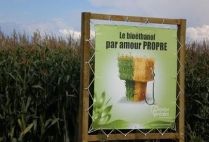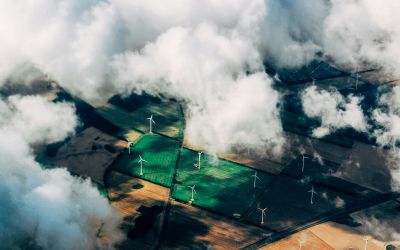EU stalls in its bid to tackle negative side-effects of biofuels production
The EU’s executive has said it is looking at measures to combat the negative side-effects of biofuels production.

The EU's executive has said it is looking at measures to combat the negative side-effects of biofuels production.
As a result of a two-year European Commission (EC) investigation, as well as their report entitled "Indirect Land Use Change (ILUC) from increased biofuels demand" will recommend six months of further studies, after which it will announce a new strategy in the summer of 2011.
"The report acknowledges that indirect land use change can reduce greenhouse gas emissions savings associated with biofuels, but also identifies a number of uncertainties," the Commission said in a statement yesterday (Wednesday 22nd December 2010).
"The Commission will continue to conduct work in this area in order to ensure that policy decisions are based on the best available science," the statement added.
Existing EC measures to safeguard against deforestation and increased food prices brought on by the production of biofuels, will be unaffected by the extension. Investment in European biofuels has slowed because of doubts about the sector's green credentials.
ILUC – the impact of biofuels production on things such as food sources - has also come to the fore. If a field of grain is switched and crops grown to produce biofuels the theory is somebody, somewhere, will go hungry unless those missing tons of grain are grown elsewhere.
Economics sometimes dictate that the shortfall will be made up in tropical zones, encouraging farmers to deforest. Such measures can create enough greenhouse gas emissions in theory to cancel out any of the climate benefits from biofuels.
Industry argues the science is flawed and that the issue could be tackled by a major overhaul of agricultural strategy to improve productivity. Whereas business would like clarification of biofuels to allow investment to take place, the EC is willing to take their time over the matter.
"It is in our interest to investigate this seriously and ensure to have a legislation that avoids negative side effects," said Guenther Oettinger, EU Energy Commissioner, in a statement yesterday.
The Commission has run 15 studies on different biofuel crops, which on average conclude that over the next decade Europe's biofuel policies may have an indirect impact equal to 4.5 million hectares of land -- an area the size of Denmark.
If that was gained by clearing wild land, as economics often dictate, it could result in a one-off release of at least 200 million tons of carbon -- about the same as the annual fossil-fuel emissions of Germany, according to Reuter's calculations.
Transport biofuel made from crops such as jatropha and sugar cane currently make up around three per cent of the petrol and diesel in UK pumps. However, the UK Government is planning to increase this to 10 per cent by 2020 to meet an EU target for renewable fuels, something which does not impress one green campaigner.
"When is the UK and Europe going to wake up to the fact that the current biofuels regime is a big green con? Rather than providing an environmentally friendly alternative to fossil fuels, they will increase emissions and destroy precious wildlife habitats.
The UK government and the European Commission must stop relying on large scale and unproven biofuels to meet renewable energy targets for transport, and instead meet them through smarter cars that use less fuel or run on green electricity. Otherwise filling our tanks with biofuel will just add to climate change and wildlife destruction, said Mark Avery, RSPB Director of Conservation on the RSPB website.
They mention that the Tana River Delta in Kenya is a site threatened by proposals to produce biofuels. It is home to a range of wetland birds, such as the endangered Basra reed warbler, along with two monkey species, the Tana River red colobus and the Tana River crested mangabey.
"We are already seeing the direct impacts of these policies. Around the world areas that are hugely important for wildlife are being put at risk in the name of sustainability. The Dakatcha Woodlands in Kenya will be completely destroyed if a clearance plan to grow biofuels goes ahead. This would push the threatened Clarke's weaver bird to extinction, and displace an estimated 20,000 people," added Avery.
Leaving fundamental issues like ILUC unresolved raised doubts over the viability of the EU's 10 per cent target for renewable transport fuel, and the UK's intention to meet it entirely through biofuels.
Though the RSPB believe that biofuels could cause more emissions than the fossil fuels they replace, the EU decision to adopt a circumspect approach to ILUC ensures that business and green groups will have to wait to find out the future of biofuels in Europe.
Author: Leroy Robinson | Climate Action
Image: Guy Leboutte | Flickr






